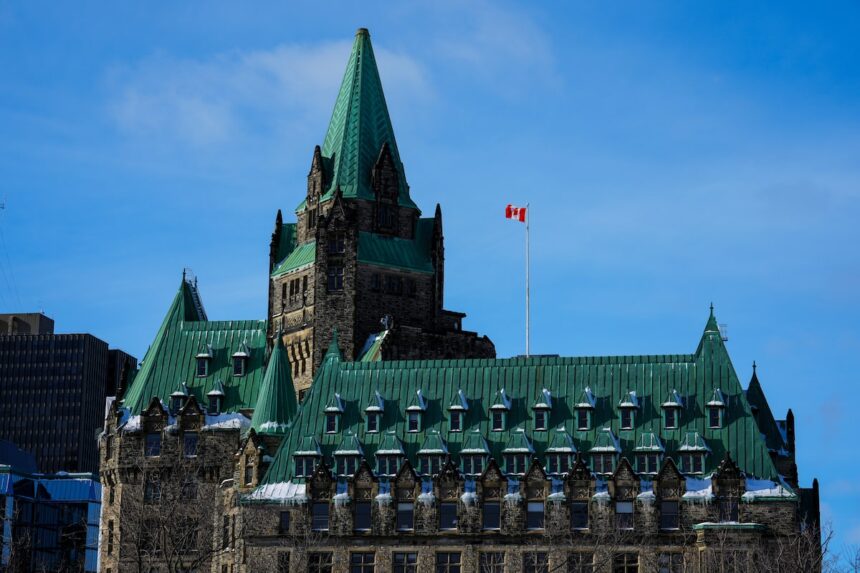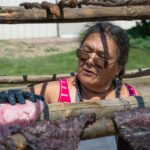Last month’s unprecedented move by Hong Kong authorities to issue arrest warrants for five overseas pro-democracy activists has drawn sharp condemnation from Ottawa, escalating tensions in an already fraught Canada-China relationship.
The arrest warrants target individuals living in Canada, the United States, and Britain who Hong Kong authorities claim violated the controversial national security law imposed by Beijing in 2020. This legislation effectively criminalized most forms of political dissent in the former British colony.
“Canada firmly rejects Hong Kong’s attempts to silence voices beyond its borders,” Foreign Affairs Minister Mélanie Joly declared in a statement that emphasized Canada’s commitment to defending democratic values globally. The minister called the extraterritorial application of Hong Kong’s security law “a dangerous precedent” that threatens international norms.
Among those targeted is Simon Cheng, a former British consulate employee who fled to the UK after being detained in mainland China in 2019. Cheng, who was granted asylum in Britain, has established a non-profit organization helping Hong Kongers resettle abroad. “This is transnational repression in its clearest form,” Cheng told me via encrypted messaging, speaking from an undisclosed location in London.
The Hong Kong government has defended its actions, with Chief Executive John Lee insisting the warrants are about “upholding the rule of law” rather than suppressing political opposition. According to data from Hong Kong’s Security Bureau, authorities have arrested more than 260 people under the national security law since its implementation, with nearly half facing formal charges.
For Canada, the warrants represent another complication in its delicate diplomatic dance with China. Relations between Ottawa and Beijing have gradually stabilized following the 2021 resolution of the Meng Wanzhou case and the subsequent release of Canadians Michael Kovrig and Michael Spavor from Chinese detention. However, this latest development threatens to reopen wounds.
The stakes are particularly high given Canada’s significant Hong Kong diaspora. Census data shows approximately 300,000 Canadians of Hong Kong descent live in Canada, with Toronto and Vancouver hosting the largest communities. Since 2020, Canada has implemented special immigration pathways for Hong Kong residents, attracting more than 20,000 newcomers under these programs according to Immigration, Refugees and Citizenship Canada.
“We’re seeing disturbing echoes of Beijing’s extraterritorial reach in our communities,” says Cherie Wong, executive director of Alliance Canada Hong Kong, an advocacy organization. Wong reports that many Hong Kongers in Canada live in fear of surveillance and intimidation. “These arrest warrants confirm what many have long suspected—that nowhere feels completely safe.”
International human rights organizations have joined Canada in criticizing Hong Kong’s actions. Amnesty International called the warrants “a blatant attempt to extend political repression globally,” while Human Rights Watch warned they represent “a dangerous expansion of transnational repression.”
The United States and Britain have issued similar condemnations. U.S. Secretary of State Antony Blinken characterized the warrants as “an effort to suppress peaceful political expression not just in Hong Kong, but around the world.”
Some observers suggest the timing is not coincidental. Dr. Lynette Ong, professor of political science at the University of Toronto and China specialist, notes that Hong Kong authorities may be testing international resolve at a moment when global attention is focused elsewhere. “With multiple international crises unfolding, Beijing may calculate that Western democracies have limited bandwidth to mount a coordinated response,” she explains.
Canada’s options for response remain limited beyond diplomatic protests. Ottawa has already suspended its extradition treaty with Hong Kong and prohibited the export of sensitive military items to the territory. Further measures could include additional sanctions or immigration pathways, though these might provoke countermeasures from Beijing.
For Hong Kongers seeking refuge abroad, the warrants create a chilling effect. “I haven’t been able to contact my family in years,” says a former protest organizer now living in Vancouver, who requested anonymity for safety concerns. “These warrants confirm I can never go home, and now I worry about traveling anywhere with strong Chinese influence.”
Legal experts question the enforceability of Hong Kong’s warrants in countries like Canada. “No democratic nation would extradite individuals for what are essentially political crimes,” explains Donald Clarke, professor of law at George Washington University. “But the real impact is psychological—creating fear and self-censorship among diaspora communities.”
As global democratic backsliding continues, Canada’s response to Hong Kong’s actions may set important precedents for how democracies defend their values beyond their borders. With authoritarian governments increasingly extending their reach into democratic societies, the stakes extend far beyond bilateral relations.






